#Zhuang Zhou
Explore tagged Tumblr posts
Text
You can't discuss the ocean with a well frog -
he's limited by the space he lives in.
You can't discuss ice with a summer insect - he's bound to a single season.
- ZHUANG ZHOU
8 notes
·
View notes
Text
Confucius and you are both dreams, and I who say you are dreams am a dream myself. This is a paradox. Tomorrow a wise man may explain it; that tomorrow will not be for ten thousand generations." —Chuang Tzu aka Zhuangzi aka Zhuang Zhou, The Zhuangzi, 3rd century BCE
10 notes
·
View notes
Text
Lao Tzu's "Destruction of the Ego" 1 (Essay)
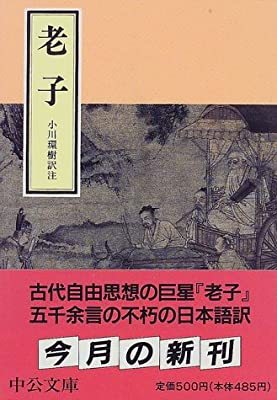
(This is a dialogue between me and a certain woman.)
Me: I believe that the key to deciphering Lao Tzu lies in how to perceive and treat the "ego." "I am myself" and "nothing", which are mentioned in Chapter 13, are especially important. I think Lao Tzu is saying that the "ego" should be "extinguished". This is "ego extinction" on a psychological or psychiatric level. In other words, it is possible to entrust the nation only to those whose "ego" has died. Otherwise, in the second half of Chapter 13, the person who merely "self-protects" is called "I have no self".
If you say that you are a such person, "Lao Tzu" will be a very boring book, isn't it?
Do not you think so?
Some time ago, I told you about the "Void Ship" of Zhuang Zhou. If the boat that crashed into it had people on board, the people who were hit would get angry, but if the boat that had no people on board crashed into it, the people who were hit would have no reason to get angry. If this "void itself" is the "ego", then something like this can happen.
Therefore, read chapter 26 with the idea that a person who can do the above is called a "gentleman". Here, "Gentleman" does not necessarily need to be read as "military commander".This chapter states that those who have extinguished their “self” are (as a phenomenon) unmoved by external things.I think you are saying that. I think that it is also the figure of "Lao Tzu" that talks about "life or death, experiences and thoughts at the limit".
She: What are some examples of people who have had "ego annihilation"?
Like Gandhi? The one who extinguished this "ego" is (as a phenomenon) an external
If anyone knows of a living example of someone who is unmoved by things, please let me know. In terms of historical figures,like Takamori Saigo? Even so, I think there are very few people like that. However, in the second half of Chapter 13, he writes the opposite. Are you writing about doing your own thing properly and not being caught up in the events of the world and not being tossed about? I feel like it's an example of what can be done in chapter 13 when the ego can be extinguished.
(To be continued)
#Lao Tzu#Destruction of the Ego#rei morishita#essay#“ego” should be “extinguished”.#Void Ship#Zhuang Zhou#gentleman#military commander#ego annihilation#Takamori Saigo#Gandhi
8 notes
·
View notes
Text
Zhuang Zhou vs. Ian Paisley: On the Absolute Complicity Between Power and Irreverence
What is the relation between irreverence and Power? Perhaps the Zhuangzi inadvertently provides a skeleton key—the reader’s dream of laughing at Power? Power’s laughter of dreaming the reader? An unspeakable taboo, a forbidden chiasmus, is put, no doubt derisively, under the reader’s nose. “Zhou and a butterfly—surely there is a division”. The phrase following the famous affirmation of ambiguity in the butterfly dream passage is, conversely, sacred. That even grammar itself seems to resist the chiasmus is very telling. Divisively, there is certainty? Not quite. The phrase is unutterable proper, precisely because it betrays the secret of certainty and the secret of division, which is that their secrets are one and the same. A Continental’s pretense of not being orientalist? An orientalist’s pretense of not being Continental? The butterfly, of course, in strict—Mathematical—opposition to its “poetic” allusions, is absolutely necessary here: is the incestuous secret not akin to the Devil’s Tuning Fork in that the Geometric body is coherent not despite but precisely because of its division? Likewise, is the same secret not akin to the oneiric “spatiotemporal” body? Finally, are the Fork and the dream not akin to the Continental Symbolic and Imaginary (it is totally irrelevant which is which), themselves writhing into being on either side of the incestuous body of the Continental Real—the literal bodily “metamorphosis” of the butterfly? There is another forbidden chiasmus which, of course, totally colludes with the first one, the second sacred phrase of “things changing”. That, indeed, “change thinging” is unutterable for the “other” reason, for simply being synonymous with base Materialism (i.e. “motion producing”) is nothing short of Demonic. Just as Demonic as literal butterflies changing precisely into living fodder for the same caterpillars: the butterfly eggs shed the butterfly’s body just as the butterfly’s body sheds the pupal case—even Biologically speaking, this abominable “spatiotemporal” body can be indefinitely traversed from one end to the other…“Where their worm dieth not, and the fire is not quenched”. Conversely, Ian Paisley says:
Last of all, let us note the content of what it says. It says “it is the Blood of sprinkling.” Those are wonderful words “the Blood of sprinkling.” There are three great instances in which the Blood was sprinkled. Go back to the Passover night. The Israelites were told to take the basin of the shed blood. They were told to take hyssop and sprinkle the blood upon the lintel and the sideposts of the door, the entrance to the house. There is a word used there that is used nowhere else about the blood. It does not say “sprinkled,” although it was sprinkled. It says, “Strike the doorpost!” “Strike the lintel!” Thank God that is what the Blood of Jesus did for me. It struck the lintels of the posts of Heaven. It struck the doorposts of glory. When it struck them, the door opened for me, and praise God, I walked in sheltered under the Blood of the Lamb. I believe there is Striking Power in the Precious Blood of Christ. What a day when the Blood struck your heart, brother. What a day that was, when God saved us by His Son’s Blood.
In contrast to the Continental-orientalist metamorphosis (commonly known as Catholicism), Calvinists cannot help but affirm the most dangerous Gnosticism—a catastrophic waking—precisely because they take orthodoxy, rather than irreverence, to the end. Catholic logorrhea about the “meaning” of the blood puts the literal and the figurative in a Zhuangzian relation, that is to say, it constitutes the IRREVERENCE OF POWER. The Catholic claims the murderous actuality of the blood to be a premise for an all but literal joke (milk, menstrual blood, intoxicants, etc.); the Devil’s Tuning Fork buzzing with the derision of Power. Whereas the Calvinist-Gnostic (Black Gnostic) steps on the pupa and witnesses the abominable substance therein. Indeed, a “regressive” Christology, one that looks for anti-metaphors in the Old Testament, lends the blood a different sameness, a proper striking power: it is precisely there that a total destitution, a total depravity of the Father himself, puts the “general exchange” (between Zhou and the butterfly) of the blood to death. It is precisely there that the aforementioned irreverent substances putrefy the blood into catastrophic venom.
Another bestial passage in the Zhuangzi, about a turtle, pertains to life and death. Curiously, Zhou concluding with affirming base life is not unlike Continental affirmation of the same base life, so much so that one could perform a short circuit between the passage itself and the Continental blueprint of “absent centers” engendering life itself. That the dead turtle is described as a literal absent center of a great multiplicity is not even one step removed from current Hegelianism, it simply is it, that Zhou does not mention a hypothetical living turtle, but the dead turtle itself being hypothetically alive—all of this “changes things”: life itself becomes hypothetical, rather than muddy (i.e. classically Material), an occult emanation from the temple of Power. That the two officials answer Zhou’s “own” question for him is an all but explicit disclosure that Power accounts for irreverence by simply being proactively irreverent. Conversely, Ian Paisley says:
In that summons is the fearsome condensing of the three hours of darkness when Christ went into the very eye of God’s awful storm of wrath upon sin—when He endured such affliction that had He not been Omnipotent He would have died the victim and not the victor—the agony which brought from the heart of the Sufferer that mysterious cry, “My God, My God, why hast Thou forsaken me!”
Therefore, the foreshortening of the dead and living bodies is an almost literal refusal to laugh at the joke of vivifying. In fact, Zhou himself can be regarded as precisely this, a homunculus or imp—irreverence itself—administering the realm of Power. Indeed, this is not so much uncharacteristic of orientalism, but covertly characteristic, exactly as orientalism itself is likewise covertly characteristic of Continentalism. Their transubstantiation being not unlike that between the two bestial bodies. In this sense, banishing the Zhou “opens” the space of Gnostic interiority which is where the incestuous contiguity of the two bestial bodies is realized (talk about “Alchemy”!). Golgotha is the very superposition of the ancestral temple and the mud: the eye of God’s awful storm of wrath upon sin is there only to forgive himself. The forbidden operation of all orthodoxy is precisely this: “synthesizing” the “two” holes of the cylinder into “one”.
A third bestial passage, about an ox, pertains to something and nothing. Conversely, there is an “anti-opposition”, so to speak, between the passage and the Gnostic position. Ian Paisley says:
WHAT WAS THE REAL VEIL?
But this of course is a type.
What was the real veil? The real veil was the flesh of the Lord Jesus. If you turn over to the book of Hebrews chapter 10:19, It says “Having therefore boldness to enter into the holiest,” you don’t need to worry, you can be bold to enter in. You don’t need to hang your head and try to sneak in, there is no sneaking-in needed. The barricade is away, completely removed, so you walk in with boldness to the throne of grace. “By a new and living way.” What is that way? The blood of Jesus. How did He consecrate that way? By the veil, that is to say His flesh. His flesh was the veil. That is most interesting. His flesh, His body, His humanity, was that veil.
You know, if you turn in your Testament to Matthew’s Gospel 27, you will find something preceded the rending of that veil. You will find there the story of the cross. You will find there the story of those who parted His garments. Verse 34 “They gave him vinegar to drink mingled with gall; and when he had tasted thereof, he would not drink. And they crucified him, and parted his garments, casting lots; that it might be fulfilled which was spoken by the prophet, They parted my garments among them and upon my vesture did they cast lots.” Then if you go on through the reading you will find that there was one garment they did not part and that was His robe. They did not tear it asunder. What was that robe? It was the robe that covered the body of Christ as He walked on this earth. Behind that robe was the sinless humanity of the Son of God, and no man could tear one rent in the covering of the sinless body of the Son of God, but on the cross the veil was rent from top to bottom.
Last night, as I was studying this text I discovered that the first blows that fell on Christ in punishment were blows upon His head. Rending the veil, the flesh, from the top to the bottom. Before they spiked His feet they had already crowned His head with thorns. Before they spiked His feet they had already torn the hairs from off His face. Before they spiked His feet they had already beaten Him on the head and spat upon Him. The veil rent from the top to the bottom! It is in the rending of that veil that we have a way into the Holiest of all.
Of course, the Zhuangzi passage begins with a master admiring a servant, this textbook perversity rather compromises whatever “Metaphysical” wealth is purportedly prepared therefrom. That the knife does not encounter the ox and vice versa maps onto the blueprint of master and servant (Power and irreverence) “not encountering each other” or, more properly speaking, disappearing into the nuptial chamber and becoming one flesh—something proactively done by Power itself. It is no coincidence that flesh itself is thereby condemned to this absolute suspension in a matrix of interstices, the intersection of lines being as the undue contiguity of Power or irreverence, this time of something and nothing. Paisley affirms a kind of “schizosomia”, a body, or bodily violation, showing through or—why not?—peering through the innocuous foliage of the vulgar body, the “anti-irreverent” unwanted answer of what happened to the ox, Metaphysically speaking. The Zhuangzi passage concerns the servant’s chamber and servant’s work, Paisley enters the master’s chamber and forcefully feeds him the ox. Is the lamb-lion transfiguration not something like a “schizoagnia”? This total bodily violation, not to mention bestialization, smashes the Holy of Holies—total destitution.
#yaldabaoth#gnosis#gnosticism#demiurge#baudrillard#ian paisley#zhuangzi#zhuang zhou#have paragraphs for once
2 notes
·
View notes
Text
أيها الإنسان الفاني عديم الفائدة، ماذا تعرف عن الأشجار عديمة الفائدة؟
ما هذه المجموعة من المختارات تسألني؟ إنّها عددٌ من أعداد نشرة “صيد الشابكة” اِعرف أكثر عن النشرة هنا: ما هي نشرة “صيد الشابكة” ما مصادرها، وما غرضها؛ وما معنى الشابكة أصلًا؟! 🎣🌐هل تعرف ما هي صيد الشابكة وتطالعها بانتظام؟ اِدعم استمرارية النشرة بطرق شتى من هنا: 💲 طرق دعم نشرة صيد الشابكة. 🎣🌐 صيد الشابكة العدد #161 السلام عليكم؛ مرحبًا وبسم الله؛ بخصوص العنوان فهو موجود في أحد الأقسام أدناه. 🎣🌐…
#160#161#Chuang-Tzu#Deep Dish#Loor Masri#Overcoming Bias#Richard Meadows#Sean Kernan#Thrive by Sean Kernan#مجلة لكُم للرواد الشباب#نشرة هدهد البريدية#نشرة عـمـــــــــق#نشرة عمق#نظرية الاحتمال#Zhuang Zhou#التفكير السريع والبطيء#ريتشارد ميداوز (Richard Meadows)#رايفين فرجاني
0 notes
Text



“If you try to kill him, I will kill you first.”
藏海传 Legend of Zang Hai
#xiaozhanedit#cdramaedit#Xiao Zhan#肖战#Legend of Zang Hai#Zang Hai#Zhou Qi#Zhuang Zhixing#cdrama#XZ gifs#acting tag#my edits
30 notes
·
View notes
Text




Lu Yuxiao shares snaps from 2024 Weibo Night with Ni Ni, Gao Ye, Xin Zhilei, Chen Haoyu, Li Xueqin, Qiu Tian, Zhuang Dafei, Li Landi, Lin Yi, Wang Xingyue, Tang Wei, Hou Minghao, Zhou Jieqiong, Chen Duling and more
#lu yuxiao#ni ni#gao ye#xin zhilei#chen haoyu#li xueqin#qiu tian#zhuang dafei#li landi#lin yi#wang xingyue#tang wei#hou minghao#zhou jieqiong#chen duling#fashion#2024 weibo night
17 notes
·
View notes
Text












#icons#girls icons#twitter icons#female icons#zhou ye icons#wang churan icons#zhuang da fei icons#wang churan#icons wang churan#sabrina zhuang icons#zhuang dafei icons#cdrama icons#chinese dramas icons#doramas icons#chinese actress icons#zhou ye#icons zhou ye#asian girls icons#cdramas icons#dorama icons#chinese actresses icons#actresses icons#cdrama moodboard#cdrama actresses icons
113 notes
·
View notes
Text










Baby is growing up! I'm so proud of this sweet angel. *sniff* But it looks like he's starting to enjoy earning his father's respect, and maybe that will dilute his desire to avenge his mother.
#zhou qi#zhuang zhixing#the legend of zang hai#legend of zang hai#zang hai zhuan#the legend of zanghai#cdrama#my stuff
11 notes
·
View notes
Text




making up for the lack of baby pingping and yingying art 👍
#i need to stop drawing these idiots and focus on my girls now#third one is a very loose headlock btw no worries#my sister used to do that to me when i attempted to peek at her laptop screen#worked surprisingly well in preventing me from reading her dms#zy isn't even half as feral as my sister was so shiyong is literally fine. he's just not enjoying being trapped#tai sui#太岁#xi ping#xi shiyong#zhou ying#prince zhuang#the cousins (deranged)#<-i feel kinda bad putting this tag in a wholesome post but whatever#my art#my tai sui art#🍀
27 notes
·
View notes
Text
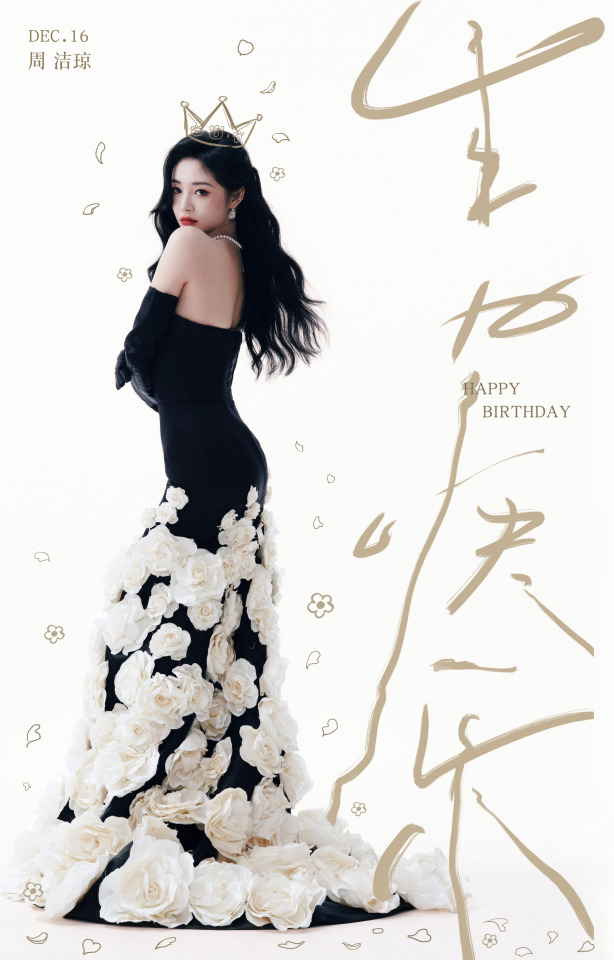








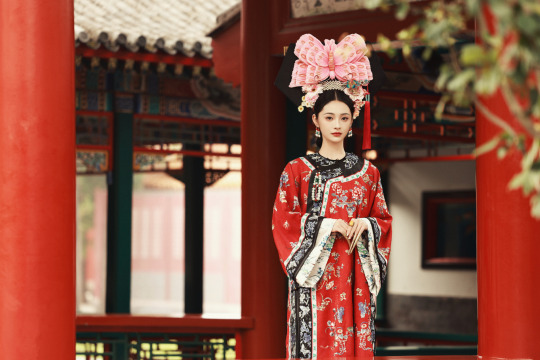
ZHOU JIEQIONG 周洁琼 in qing han nv zhuang | birthday photoshoot 🎂 『 16 Dec 2024 』
Zhou Jieqiong: more photos here birthday photoshoot: more photos here
9 notes
·
View notes
Text
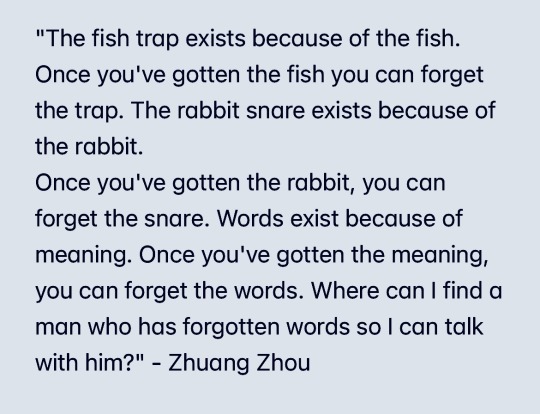
13 notes
·
View notes
Text
Step by Step
#fanvideo#dorama#the glory#zhuang hanyan#fu yunxi#ruan xiwen#zhou ruyin#zhuang yushan#zhuang yuchi#zhuang shiyang
2 notes
·
View notes
Text
Bizet: "L'Arlésienne" - Farandole
youtube
Bizet was a precocious genius who could be compared to Mozart. Like Mozart, he died in his 30s. He was good at composing based on folk music, and this song is no exception, skillfully incorporating folk songs from the Arles region. The song's melodies can be described as linear, evoking the sexual end of men. That's interesting.
Bizet: "L'Arlésienne" - Farandole
ビゼーはモーツァルトにも比較できる早熟の天才だった。モーツァルトと同じく30代で死んでいる。彼は民族音楽に材を取り、作曲するのが得意だったが、この曲も例外ではなく、アルル地方の民謡を巧みに取り入れている。その曲想は、男性の性的終結を想わせるように直線的だと言える。そこが面白い。
2 notes
·
View notes
Text
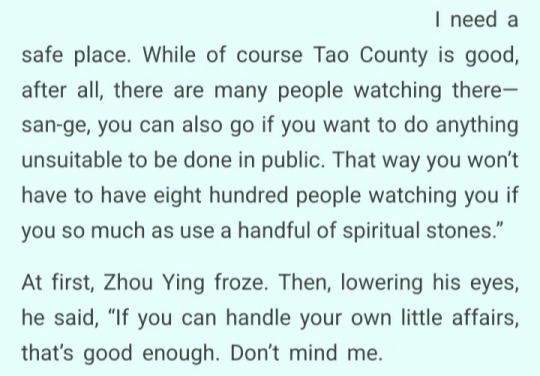
It's hitting me now as I reread why Zhou Ying freezes up here.
He's not just surprised that Xi Ping is hinting he knows Xuanyin wants him to establish a foundation. He's taken aback because Xi Ping automatically wants to help him evade the sect's scrutiny and railroading, but by this point, he's already planning to accept Xuanyin's demands and enter the way of clarity. That's why Xi Ping making arrangements for him like this throws him off, and it's why he "casually" tells him not to do so.
Local man prepares to let the government turn him into an emotionless shell, is shaken by the reminder that he has loved ones who will be incredibly hurt by that decision.
#everything about these damn cousins makes me insane#self sacrifice arc except the thing Zhou Ying is sacrificing himself for is his own insane schemes#xi ping's despair at zhou ying entering the way of clarity was one of the things that messed me up the most on my first read#tai Sui#tai sui priest#zhou ying#prince zhuang#zhou ying my beloved#taisuiposting#english major hours#ID in alt text
13 notes
·
View notes
Text





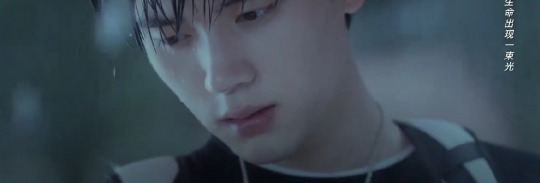
You are Desire X My lovely liar
Just RAIN and my ships against the world!!
Currently my favourite on air dramas are serving top-tier chemistry
Rain and romance go together isn't it?? Rain is melancholic or rain is the calmness to burning souls- your clothes may get heavier with rain but the heart always become lighter. I have always wondered why does rain kind of also define the way we love..it's like holding an umbrella for someone even though you are getting wet - isn't that love! What if rain never appeared could we ever witness the beauty of rainbows?? It's like running with someone even when it rains cause you are not afraid of getting wet!! I knowwww it's too delusional but then I always have this romanticism of 'rain' (can't help much)!! And to a single self it's also dancing like no ones watching when you truely care about your own freedom and happiness!
#you are my desire#naturecore#zhou yiran#my lovely liar#kim so hyun#headers#hwang minhyun#sabrina zhuang#you are desire#love#kdrama#cdrama#fiction#love story#rainbow#raine whispers#rain world#rain sounds#nature core#soulmates#feelings
33 notes
·
View notes